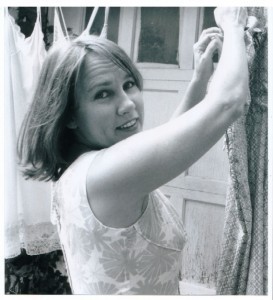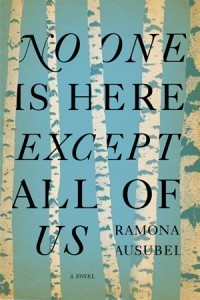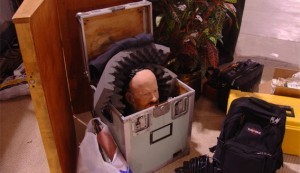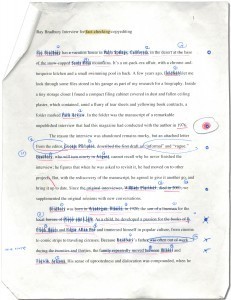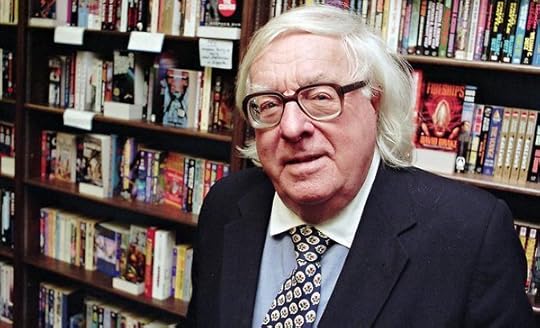The Paris Review's Blog, page 909
June 8, 2012
What We’re Loving: All Kinds of Poetry
Iris DeMent
When Anthony Heilbut isn’t producing beautiful gospel, he tends to be writing—slowly—either about German modernism or else about the music and musicians he loves. The Fan Who Knew Too Much is the book Heilbut's gospel fans have been waiting for since The Gospel Sound (1972). In this connection, I can’t resist quoting our Southern editor right off the back cover: “Nothing new in the last year gave me as much pure reading pleasure as pages of this book. Heilbut ranges over the culture like a madman, but with a fierce sanity in his eye, debunking myths and erecting new ones. I finished The Fan Who Knew Too Much wondering how, without it, I’d ever thought I understood a thing about America in the twentieth century. Let me ask: Are you familiar with the history of gays in gospel? Or with the early, radio roots of soap operas? Then you too are similarly benighted. Get with this.” Amen. —Lorin Stein
Selling, Banning, and Walking
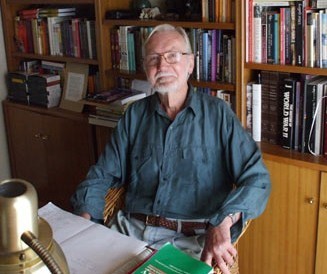
Novelist Barry Unsworth has died at eighty-one.
The Catholic Church denounces a book; it becomes a best seller.
(Almost as effective as Oprah.)
Lev Grossman teaches us how to read and walk simultaneously.
" target="_blank">“The Comedy of Noir.”
Where things stand: the Rumpus explores racial bias in the world of books.
June 7, 2012
Browbeaten: The Eyebrow
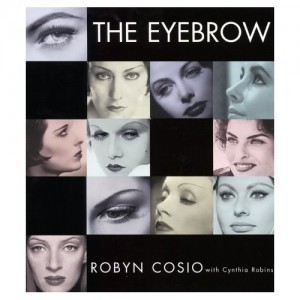 My first “boyfriend” broke up with me at camp in a letter that read, “You look like the girl from Planet of the Apes—I mean the ape she played, not the girl who played her.” He meant Helena Bonham Carter in the Tim Burton version that had come out that summer. More specifically, he meant that for an eleven-year-old, I had very unruly and freakishly thick eyebrows.
My first “boyfriend” broke up with me at camp in a letter that read, “You look like the girl from Planet of the Apes—I mean the ape she played, not the girl who played her.” He meant Helena Bonham Carter in the Tim Burton version that had come out that summer. More specifically, he meant that for an eleven-year-old, I had very unruly and freakishly thick eyebrows.
Having kempt mine since that summer (on a necessarily frequent basis), I notice eyebrows more often than is normal; they bear special significance to me. Midway through Alfred Hitchcock’s Shadow of a Doubt, Charlie confronts her uncle about his awful secret life as a woman strangler. Sitting across from him at a seedy bar, she watches his hands painfully wringing a napkin, then she tells him all that she knows: wordlessly, she raises a single eyebrow. The plot hinges on that one thin line of hair. Read More »
Adaptation: An Interview with Ramona Ausubel
My conversation with Ramona Ausubel took place in the ether between upstate New York and California, from a small desk in my bedroom to her home in Santa Barbara. I wore something slobbishly inappropriate and kept one eye on my three kids as I typed. A tired Ausubel was herself caring for her newborn infant. So I cannot tell you about her curly red hair, her slippers, or the tone of her voice. I cannot tell whether you can smell the Pacific from her house. You will have to imagine these details, an appropriate exercise for thinking about an author whose debut novel is so wholly original it climbs new heights of imaginary prowess.
While the world might be sick with our busy-making and e-mail interviews, Ramona Ausubel’s debut novel, No One Is Here Except All of Us, offers an antidote. Impossibly she has set her story in both a fabled land where magic is plentiful and in the brutish depths of World War II. Though the novel is concerned with identity and community, there is nothing quaint in Ausubel’s confluence of the domestic and the historic. History seeps through cracks in stories and prayers the characters tell as they reimagine the borders and rulebooks of a small town. The patterns of home replicate into the patterns of the planet, but a reader finds nothing small in these small acts. —Samantha Hunt
Bradbury, Trethewey, and an Android
“I am not afraid of robots. I am afraid of people.” Ray Bradbury answers a fan letter, 1974.
is named Poet Laureate.
Telling tales on the mid-century New Yorker. Just who was Janet Groth’s thinly disguised cad, the Great Deceiver?
Protesting New York City library cuts.
An Emily Dickinson garden party in Amherst.
Controversial words in China and the USA.
The android head of Philip K. Dick is terrifying.
June 6, 2012
Fact-checking Ray Bradbury
I didn’t grow up reading The Paris Review. My earliest encounter with the magazine—I’m somewhat ashamed to admit—came in graduate school, when I stumbled upon an interview with Milan Kundera. (I was writing a paper on translation, and the quote I pulled didn’t even make it into a footnote.) Had you asked me, a year or so later, when I found myself applying for an internship, what the magazine meant to me, I wouldn’t have given you an honest answer. It didn’t mean much of anything to me. I wanted a foot in the door in New York, and The Paris Review’s seemed as good a door as any.
The latest issue, 191, had closed just before I started, so my first few weeks were quiet. I read submissions, delivered packages, distributed the mail. Then came my first real assignment: We were running an interview with Ray Bradbury, and it needed fact-checking. I volunteered.
Dear Lane Pryce, Some Retroactive Advice
I feel like Eminem when he wrote to that dude Stan, recommending psychiatric treatment before realizing that Stan had already driven his car off a bridge, pregnant girlfriend tied up in the trunk. Or like the guy in that Phil Collins song “In the Air Tonight” who could have saved that other guy from drowning, but didn’t. Or like Count Vronsky in Anna Karenina, who was so busy partying with socialites, he didn’t realize his girlfriend was depressed and fucked up on morphine until it was too late.
[Spoiler alert! -Ed.]
Read More »
Special Summer Subscription Offer!
 You’ve read about our Summer issue. But wait, there’s more: subscribe now and for a mere $30, get a full year of The Paris Review. That’s right, for a limited time you can get four issues of fiction, poetry, essays, and more for only $30, which is, yes, $7.50 an issue, and, yes, a real bargain. Offer good through Friday, June 15. Subscribe now!
You’ve read about our Summer issue. But wait, there’s more: subscribe now and for a mere $30, get a full year of The Paris Review. That’s right, for a limited time you can get four issues of fiction, poetry, essays, and more for only $30, which is, yes, $7.50 an issue, and, yes, a real bargain. Offer good through Friday, June 15. Subscribe now!
Ray Bradbury, 1920–2012
“I don’t believe in optimism. I believe in optimal behavior. That’s a different thing. If you behave every day of your life to the top of your genetics, what can you do? Test it. Find out. You don’t know—you haven’t done it yet. You must live life at the top of your voice! At the top of your lungs shout and listen to the echoes. I learned a lesson years ago. I had some wonderful Swedish meatballs at my mother’s table with my dad and my brother and when I finished I pushed back from the table and said, God! That was beautiful. And my brother said, No, it was good. See the difference?
Action is hope. At the end of each day, when you’ve done your work, you lie there and think, Well, I’ll be damned, I did this today. It doesn’t matter how good it is, or how bad—you did it. At the end of the week you’ll have a certain amount of accumulation. At the end of a year, you look back and say, I’ll be damned, it’s been a good year.”
—Ray Bradbury, The Art of Fiction No. 203
Introducing Our Summer Issue!
Unlike some magazines, we don’t do “theme” issues. And yet, as we collected the material that makes up 201, we couldn’t help notice that the issue had a decidedly ... dramatic bent. Not just interviews with Tony Kushner and Wallace Shawn, but Ann Beattie’s story, “The Astonished Woodchopper,” featuring just that; a Sam Lipsyte story about a modern-day duel; Roberto Bolaño poems about sex and betrayal; Rich Cohen on pirates; Waris Ahluwalia on animal attraction; Davy Rothbart telling the true story of the best night of his life; plus, J.D. Daniels directing you to eat your parents.
Tony Kushner:
In some ways the Internet is definitely an enemy. This morning I was going to work on a Lincoln rewrite before I came to meet you. A couple of days ago I biked all over Provincetown looking for a needle threader—you know, one of those old-fashioned little tin discs with a cameo on it and a thin wire loop sticking out. I found one and bought it. I’m trying to teach myself how to needlepoint. I even considered bringing my needlepointing here, needlepointing during the interview, but then what would you think? Anyway, I bought this needle threader, but it was crap–two uses into it, the thing broke. So, this morning before working on Lincoln, I decided I would go online and find a really good needle threader. And who knew that on Amazon alone, there are dozens of needle threaders? So I started thinking, Why does this needle threader have five starts and this one four and a half? And this one only has two, isn’t that interesting? Can you imagine who got this needle threader and was really disappointed? And then, it’s like, Oh my God, it’s ten o’clock! I didn’t do any work.
Wallace Shawn:
I wish there were more plays about a life that is exactly like mine. I would love that! If the program says, ‘An apartment in Manhattan today,’ I’m thrilled! And if it says, ‘An apartment in Chelsea, in Manhattan, today,’ where I live, I’d be even more thrilled. I’m amazed if I can see an actor imitate someone with a French accent—that’s fantastic—and I’m even more excited if an actor can illuminate the psychological state of a person similar to me and the people I know. So I do like naturalistic theater. But I like many kinds of theater.
Plus, poetry from John Ashbery, Sophie Cabot Black, Raúl Zurita, Octavio Paz, Lucie Brock-Broido, and David Ferry; nonfiction by Ludmilla Petrushevskaya; and a new translation of Virgil.
The Paris Review's Blog
- The Paris Review's profile
- 305 followers


